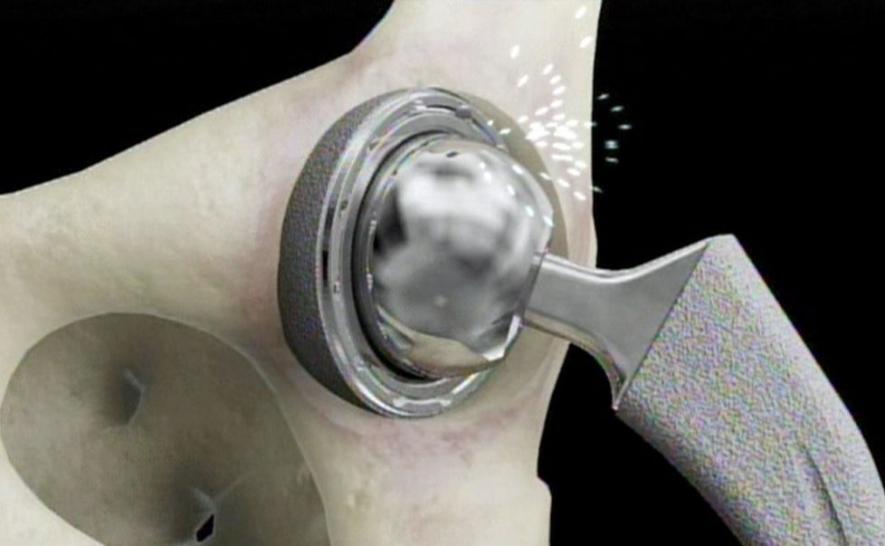Implant Files: Global Examination of the Medical Device Industry

The International Consortium of Investigative Journalists (ICIJ) has come up with a startling report- “The Implant Files”- on how the booming medical device industry in the world controls the health care sector. The report compiles findings from across 36 countries with the investigation done by 250 reporters and data specialists from 59 news organisations over the past one year.
Though medical devices are meant to improve and save lives, most of the governments have allowed products in the market with little or no human testing that went on to cause great harm. The study into India’s medical device industry found the same, in fact, it goes on to say that the country’s regulatory system “effectively, doesn’t exist.”
In India, a market which is worth over Rs. 35,000 Crore, the global pharma companies managed to hardsell their medical devices that were advertised, sold and implanted in the absence of a proper regulatory system, found The Indian Express, which is part of the ICIJ team, during their 10-month-long investigation. As part of the dubious nexus between global majors and hospitals, medical devices- from leading companies like Medtronic, Stryker, Abbott, Bayer and Johnson & Johnson- including pacemakers, breast and knee implants, coronary stents, pelvic meshes and intrauterine devices have been pushed to the health market.
There exists a shockingly high number of patients consulting doctors with botched up orthopaedic implantation surgeries. All India Institute of Medical Sciences (AIIMS) alone conducts over 1,500 hip and knee surgeries. But “20 per cent of them are revision surgeries. An implant lasts for at least 10 years. But due to surgical errors, many patients have to undergo revision surgery within months. 80 per cent of these surgeries are because of surgical errors, mostly to correct faulty hip implants,” Dr. C S Yadav, one of India’s top orthopaedic surgeons from AIIMS, was quoted as saying by The Indian Express, pointing at the magnitude of the issue.
Read More: “Health for All Now!” – Fourth People’s Health Assembly Begins in Savar, Bangladesh
If we consider at the national level, it is estimated that 1.2 lakh knee replacement and around 70,000 hip replacement surgeries are being done annually.
“Most of these cases come to us from Tier 3 cities. You will ask me, who is the villain. There is no single villain: industry and market forces, untrained doctors, poorly designed and hyped implant devices and inadequate infrastructure in operation theatres,” Dr. Yadav said.
The story of 51-year-old Arvind Kumar, who travelled more than 700 km from Ambedkar Nagar near Ayodhya for his second follow-up session after his hip replacement surgery at AIIMS on July 24, 2018, narrated how terrible the condition is. It was his third replacement surgery after two similar surgeries which had gone unsuccessful at a private hospital in Lucknow.
“It’s not just the intense pain and mental trauma. I lost my job as a sales manager at a private firm in Chandigarh, and have already spent over Rs. 13 lakh for treatment. What started as simple fracture on my left hip, which I suffered in a road accident in Rohtak, has pushed my life into a corner from where I can’t escape,” The Indian Express report quoted Kumar.
Earlier, Kumar had been referred to a government hospital in Chandigarh by doctors at the Rohtak district hospital and on July 21, 2014, the fracture was repaired with a hip screw which is a common orthopaedic implant. “But after the surgery, I started experiencing a severe burning sensation in my hip. The screws were then removed and a new plate fixed. That did not help and I went to Lucknow for treatment,” said Kumar.
Again, on September 4, 2014, Kumar was subjected for a total hip replacement surgery at a private hospital in Lucknow. “Within five months, my hip got dislocated. When I went back, I was taken to the operation theatre for the hip to be readjusted. In September, 2015, the hip got dislocated again. And again, the hospital asked me to undergo the same procedure, which failed,” said Kumar.
Read More: What Do Violent Conflicts Have to Do With Health? Everything, Says People’s Health Assembly
“The doctor told me that I would have to undergo a revision surgery, which was conducted in August 2016. This January, as I was trying to sit down, the screw of the implant got loose and cup got dislocated. I rushed to doctor but he advised me to undergo another surgery to implant a new device. That day, I realised that the doctor didn’t know what he was doing,” he says. After series of these surgeries and consistent pain, he consulted doctors at the King George Medical University and they referred him to AIIMS. This is the case of a single patient, how many of such cases have happened?
‘Manufacturers Withhold Important Information’
“The industry decides the implant’s design and longevity but, in many cases, hides the information on its drawbacks. It influences the choices of surgeons and patients, and scientific meets where live demonstration surgeries are conducted,” Dr Yadav pointed to the role of medical device companies in many of these botched surgeries.
The Express investigation also revealed that manufacturers usually don’t tell patients that the device implanted in their body was withdrawn from global use. Even when they say it, it is delayed. Food and Drug Administration (FDA) data, however, shows that the details of the recalled devices distributed in India were never made public by these manufacturers.
The study also pointed that most medical and diagnostic medical equipment used in private clinics and hospitals were found to have been imported as “pre-owned” or “second hand”, and no assessment was done on their accuracy or safety levels.
India, the fourth largest medical devices market in Asia after Japan, China and South Korea, has a medical device market of over Rs. 36,000 Crore and it contributes 4-5 per cent to the country’s over Rs. 6.8 lakh Crore health care industry.
At present, Johnson & Johnson faces a case in Supreme Court of India over faulty hip implants that have spoiled the lives of more than 4,000 people.
Read More: Johnson & Johnson To Face Heat Over Faulty Hip Implants
Not only in India, 80 per cent of the countries across the world have no publicly available data over device safety issues. The governments in dozens of countries from Africa, Asia and South America don’t really regulate medical devices, rather trusting European authorities or United State’s FDA. As part of the effort to make the information available for public, ICIJ has created a data base- International Medical Devices Database.
Manufacturers, doctors, and others potentially have linked more than 17 lakh injuries and nearly 83,000 deaths to medical devices in reports to U.S. regulators over the last decade.
The figures also showed how big is the size of the medical device business and how fast it is growing. “Annual industry sales more than doubled from about $118 billion in 2000 to about $400 billion in 2018. A fund composed of leading medical device stocks returned a sparkling 125 per cent in the last five years as of November 14, compared to 52 percent for the broader economy reflected in the Standard & Poor’s 500,” said the ICIJ report.
Get the latest reports & analysis with people's perspective on Protests, movements & deep analytical videos, discussions of the current affairs in your Telegram app. Subscribe to NewsClick's Telegram channel & get Real-Time updates on stories, as they get published on our website.
























